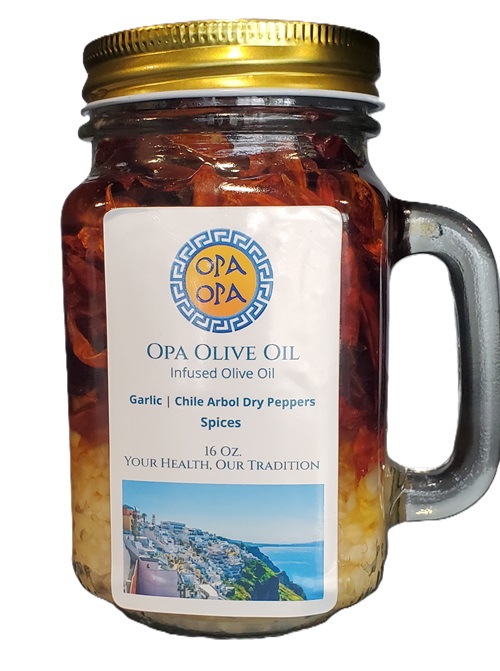Exploring the Health Benefits of Olive Oil
For centuries, olive oil has been a staple of Mediterranean diets, celebrated not only for its flavor but also for its impressive health benefits. Today, backed by scientific research, we understand why it’s a must-have in any health-conscious kitchen. This article dives into the numerous benefits of olive oil, why you should incorporate it into your diet, and how to do so effectively.
Why You Should Add Olive Oil to Your Diet
The benefits of olive oil extend beyond these individual health advantages. Incorporating it into your daily routine can lead to an overall healthier lifestyle, promoting longevity and vitality. The Mediterranean diet, which heavily features olive oil, has been hailed as one of the healthiest diets worldwide.
Health Benefits of Olive Oil
♦ Rich in Healthy Fats
Olive oil is predominantly comprised of monounsaturated fatty acids (MUFAs), which contribute to heart health by increasing levels of “good” cholesterol (HDL) and decreasing “bad” cholesterol (LDL). Among plant-based cooking oils, olive oil boasts the highest level of MUFAs, making it a superior choice for those seeking healthy fats for their diet.
♦ Antioxidant Rich
Extra-virgin olive oil is packed with antioxidants, compounds that help combat oxidative stress and free radicals in the body. These antioxidants have been linked to reduced risk of chronic diseases and overall improved cellular health.
♦ Reduces Type 2 Diabetes Risk
Studies suggest that including olive oil in your diet can help regulate blood sugar levels and improve insulin sensitivity, potentially reducing the risk of developing type 2 diabetes.
♦ Anti-Cancer Properties
Research indicates that the antioxidants in olive oil may help protect against certain cancers. Phenolic compounds found in olive oil have shown potential in reducing inflammation and slowing cancer cell growth.
♦ Nourishes the Skin
Applying olive oil topically can moisturize and nourish the skin, while consuming it may improve skin elasticity and reduce signs of aging due to its antioxidant content.
♦ Reduced Risk of Heart Disease
Consuming olive oil regularly has been associated with reduced risks of heart disease, thanks to its ability to lower blood pressure and reduce inflammation.
♦ Aids in Weight Loss
Though high in calories, olive oil can aid in weight management. Its satiating properties help control appetite, making it easier to maintain a healthy weight.
♦ Good for Digestion
Olive oil acts as a natural lubricant in the digestive tract, promoting smoother digestion and reducing constipation.
♦ Supports Cognitive Function
The healthy fats in olive oil support cognitive function and may reduce the risk of neurodegenerative diseases such as Alzheimer’s.
♦ Anti-inflammatory Properties
Olive oil contains oleocanthal, a compound with similar anti-inflammatory effects as ibuprofen, helping to reduce inflammation in the body.
♦ Improves Bone Density
Regular consumption of olive oil has been linked to improved bone density and health, reducing the risk of osteoporosis.
Types of Olive Oils
Extra-Virgin Olive Oil (EVOO) – The least processed form, retaining most of its natural flavor and antioxidants.
Virgin Olive Oil – Slightly more processed than EVOO, but still maintains a significant amount of nutrients.
Pure or Regular Olive Oil – A blend of refined and virgin olive oils, often used for cooking at higher temperatures.
Light Olive Oil – More processed, lacking in flavor and some nutritional benefits compared to EVOO or virgin olive oil.
Recommended Oil Intake Per Day
For optimal health benefits, it’s recommended to consume about 1-2 tablespoons of extra-virgin olive oil per day. This quantity provides essential fats without overwhelming your daily calorie intake.
Ways to Add Olive Oil into Your Diet
Drizzle on Salads: Replace heavy dressings with a simple olive oil and lemon juice dressing.
Cooking: Use olive oil for sautéing or roasting vegetables to enhance flavor.
Baking: Swap butter for olive oil in recipes for a healthier alternative.
Dipping: Pair it with crusty bread or fresh vegetables for a Mediterranean-inspired snack.
Smoothies: Add a teaspoon to your morning smoothie for an extra health kick.
Nutritional Value
Nutritional Value of Olive Oil per Tablespoon:
- Calories: 119
- Fat: 14g
- Saturated fat: 2g
- Monounsaturated fat (MUFAs): 10g
- Polyunsaturated fat (PUFAs): 2g
- Vitamin E: 13% of the Daily Value (DV)
Olive oil is a versatile and delicious addition to any diet, with numerous proven health benefits.
As part of a well-rounded and balanced diet, it can promote better overall health, from reducing the risk of chronic diseases to improving skin and brain function. So go ahead and incorporate this “liquid gold” into your daily routine for improved well-being.
If you’re looking to explore the benefits further, credible sources like the National Institute of Health, North American Olive Oil Association, and Cleveland Clinic offer valuable insights into its impact on health.
Start incorporating olive oil into your diet today and experience the difference it can make in your overall well-being. Cheers to health!

